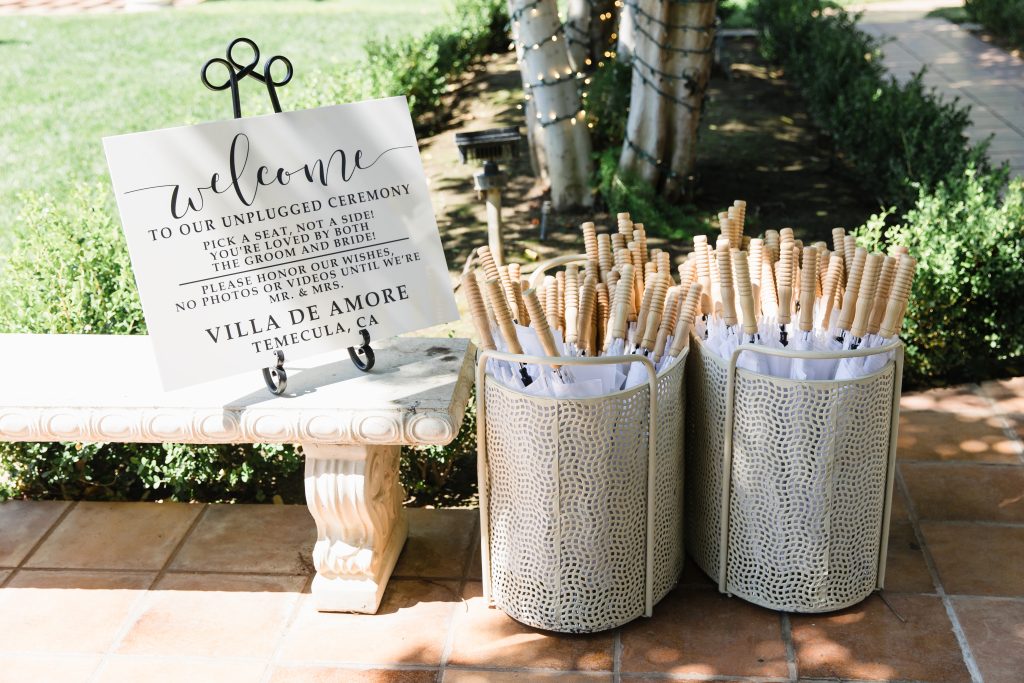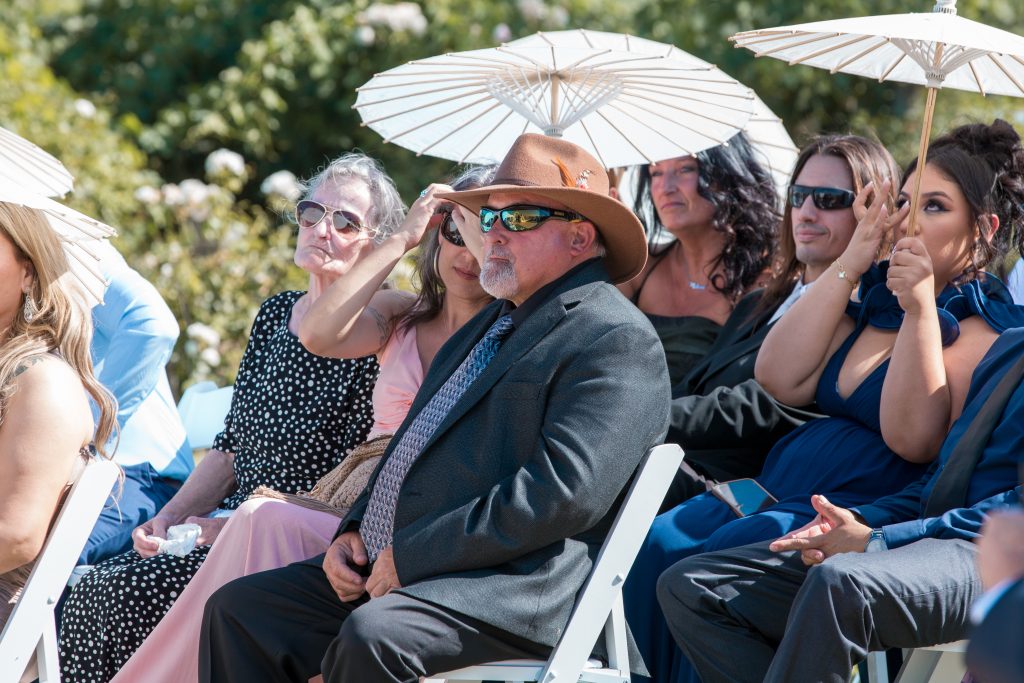
Unplugged Wedding Ceremonies: The Pros & Cons to Consider
As wedding coordinators, we often see many trends come and go. One that has steadily gained popularity is the “unplugged ceremony.” This refers to a wedding ceremony where guests are asked to put away their phones, cameras, and other devices to be fully present in the moment. There are both advantages and disadvantages to having an unplugged ceremony. Here’s a breakdown to help you decide what’s best for your big day.

Pros of an Unplugged Ceremony
Increased Guest Engagement
One of the biggest benefits of an unplugged ceremony is the level of engagement from your guests. Without the distraction of phones, your loved ones are more likely to stay present and appreciate the beauty of the ceremony. They’ll truly experience each moment as it unfolds, rather than trying to capture it through a screen.
Professional Photos Aren’t Interrupted
Many couples invest in professional photographers to capture the special moments of their day. When guests are busy snapping pictures, it can interfere with the photographer’s work. We’ve seen photos interrupted by someone stepping into the aisle or holding up their phone at the exact moment the couple shares their first kiss. An unplugged ceremony allows the photographer to work without distractions, ensuring you get the best images possible.
A Peaceful Atmosphere
There’s something serene about a ceremony free of beeping phones, flashing lights, and the constant clicking of cameras. An unplugged ceremony fosters a more intimate, peaceful environment, allowing the couple and guests to focus on the vows and the meaning of the moment.
Maintaining Privacy
For couples who are more private, an unplugged ceremony ensures that personal moments aren’t instantly shared on social media. It gives the couple control over what is posted and when, allowing them to curate the online presence of their wedding, if they choose to share it at all.

Cons of an Unplugged Ceremony
Guests May Feel Disappointed
Many guests genuinely enjoy capturing moments on their own devices, whether for memory’s sake or to share with others who couldn’t attend. Asking them to refrain from taking photos can feel restrictive to some, especially in today’s social media-driven world. Some guests may even miss having their own mementos of the day.
Missed Candid Shots From the Guests
While professional photographers capture the ceremony beautifully, candid moments taken by guests can sometimes offer a different, more personal perspective. Some couples cherish the informal photos and videos guests take, as they capture spontaneous reactions or angles that a photographer might miss. An unplugged ceremony means missing out on those personal snapshots.
Communication with Absent Guests
Some guests may want to share live moments with family and friends who couldn’t attend. An unplugged ceremony limits real-time sharing, which could be a drawback for couples with large networks or distant loved ones. Guests who are used to live streaming or sharing photos as they happen may feel disconnected.
Having to Wait for the Professional Photos
Without guests taking their own pictures, couples may have to rely solely on the photographer’s timeline for receiving images. While the quality is always worth the wait, you may get eager to relive those special moments sooner.

Finding a Balance
An unplugged ceremony can create a more meaningful, distraction-free experience for both you and your guests. However, it’s important to weigh the potential drawbacks and think about your guest list. If you feel that your family and friends will respect and appreciate the intention behind the decision, then it may be the perfect choice for your wedding.
As wedding coordinators, we always encourage you to follow your heart. Whether you choose to have an unplugged ceremony or not, the day will be beautiful, and it will be uniquely yours.